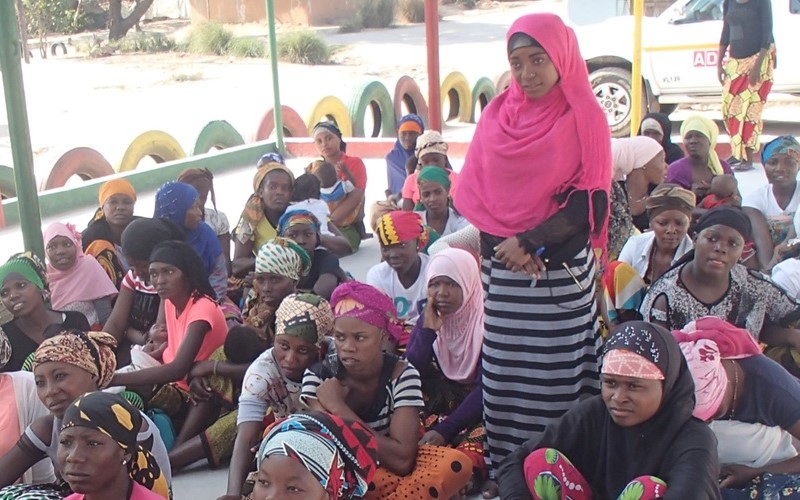
By Dr Karen Nyangara
COL Adviser: Gender
In the book Capital and Ideology, author Thomas Piketty makes the case that the great driver of human progress over the centuries has been the struggle for equality and education. The International Day of the Girl Child (IDGC), celebrated annually on 11 October, offers a chance to reflect on the struggles girls face worldwide because of their gender. Equality efforts continue to dismantle the discriminatory social structures and barriers that disempower girls. Still, not a single country has achieved full gender equality, and no girl is safe from the threat of discrimination, harassment and gender-based violence.
Quality education is central to empowerment and countries strive to remove barriers limiting girls’ educational participation and attainment. However, global gender parity in upper secondary schools is still at 24 per cent, and 119 million girls are out of school (UNICEF). With many countries in conflict, battling climate change and economic downturns, the disproportionate negative impact on girls is eroding some of the gains of recent years, leading to uncertain futures in unsafe and unsupportive environments, rising poverty and exclusion for the most vulnerable.
Through the years, the IDGC has emphasised that girls can shape their future if given the capacity and agency through education, training and space to participate in the public domain. “If effectively supported during the adolescent years, girls have the potential to change the world – both as the empowered girls of today and as tomorrow’s workers, entrepreneurs, mentors, household heads, political leaders and mothers. An investment in realising the power of adolescent girls upholds their rights today. It promises a more equitable and prosperous future — one in which half of humanity is an equal partner in solving the problems of climate change, political conflict, economic growth, disease prevention, and global sustainability”(UN, 2024).
This day, therefore, offers a chance to celebrate and reinforce our commitment to enable the voice and power of girls to champion their rights and create a better world. The theme of this year’s International Day of the Girl is ‘Girls’ vision for the future’ and highlights the need for urgent action, increased investment in girls and the visibility of girls’ voices and vision. For girls worldwide, the Commonwealth of Learning (COL) is a catalyst for building capacity through the transformational power of education and an enabler of agency for gender equality through training and advocacy.
COL uses a holistic approach to work with international development partners, governments, educational institutions, and grassroots organisations to bring education and training to marginalised women and girls and persons with disabilities in the Commonwealth. COL recognises that locally relevant and sustainable solutions to gender equality and education improve the quality of lives, not just for girls but for the whole community.
The following success stories demonstrate how COL’s support enables girls to take charge of their destiny, find solutions to challenges and use their voices and power to champion equality, education, improved livelihoods and increased community participation.
COL’s CommonwealthWiseWomen mentoring project promoted change by empowering girls and young women to become leaders and influence the next generation of leaders. The project leveraged the power of digital technology to connect mentees to prominent female leaders and provides mentees and mentors with access to a safe space to share ideas and learn from each other. Lucky, a mentee from Tanzania, summed up what a huge impact the digital programme had on her. She commented, “This programme inspired me to become a person who believes that social change is possible if you are empowered with access to the right information.”
In Namibia, the shy yet bubbly Engenette was the only adolescent in the first cohort of tailoring trainees implemented under COL’s Girls Inspire Initiative at Farm Versailles, a settlement in the Khomasdal region. She is now a role model for other girls to enrol in subsequent cohorts to learn tailoring, gardening and beadwork. The training provided by the Khomas Directorate of Education, supported by COL, has not only improved Engenette’s economic status but also given her the voice to speak out on human rights and gender equality.
In São Damasso, Mozambique, at only 15 years of age, Délcia has become an advocate for the inclusion of persons with disabilities as well as for climate change after being trained in human rights and protective legislation under COL’s GIRLS Inspire initiative. Délcia is passionate about sharing information on disability rights and environmentally friendly activities, taking leadership of the group in her school, collaborating with student leaders in other schools, as well as creating community awareness.
In Bangladesh, Sumitra uses the skills learned through COL’s Women in ICT programme to train other women in her village on general ICT skills and learning through the Internet in the local Bangla language. She has started a cooperative and trains women in locally relevant courses such as cattle rearing, crab farming, honey production and marketing.
In Sri Lanka, Renuka was trained as an entrepreneur and became a volunteer equity facilitator after further training under COL’s Women & Girls Empowerment project. Renuka now encourages and supports other women and girls to exercise their rights to education and livelihoods despite threats from community members opposed to gender equality.
These are but a few of the stories of significant change that show how matching interventions to the life circumstances of girls can transform lives and drive change. COL seeks to effect lasting and sustainable change driven by the voiced needs of adolescent girls and backed by continuous investment in education and skilling. Gender equality underlies COL’s work and reflects the core message of the International Day of the Girl Child.


